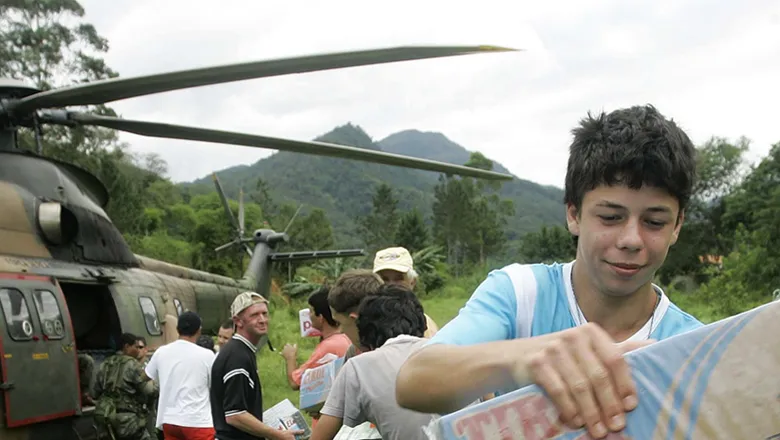We are delighted to be able to work with partners to enhance understanding and spark innovative thinking on these critical issues. “The interactive formats of the online games and workshops provide immersive and engaging approaches to show what is at stake for the planet if new tactics are not developed. They also look at the significant role security organisations will have in future conflicts.
12 October 2021
Environmental Security Research Group leading ground-breaking projects as part COP26 Climate Change Conference
The ESRG will develop an innovative project on gamification as well as environmental peacebuilding workshops for Lambeth Palace

Ahead of the COP26 UN Climate Change Conference, taking place in the UK this November, the Environmental Security Research Group in the School of Security Studies is developeding two innovative projects to raise public awareness of climate security issues.
The group has been awarded funding from the King’s Climate Change Conference of the Parties (COP26) Engagement Fund to design and develop two online games, which address strategies to combat climate change through coordinated action. They are also working with Lambeth Palace, part of the Anglican Church Cooperation, to develop a series of cross-continental environmental peacebuilding workshops.
The gamification project involves creating a scenario-based game in the form of an app, which will look at obstacles encountered by security officials at an operational-level such as emergency insurgency. Adapted from the Conservation Crisis online game by Tunza Games, the Climate Change edition puts players in the position of leading a country suffering from the devastating effects of climate change, with the crucial job of averting a climate using a limited budget and scarce resources.
The game functions as a realistic depiction of the challenges posed by climate change and environmental insecurity. Players are guided through a ‘trial and error’ method to safely test and develop strategies to overcome such threats within the virtual net of a gaming environment.
The second to be developed is a role-play game to take place during a seminar, focusing on how we tackle the security implications of climate change at an institutional level. Players must step into the shoes of individuals and organisations from various sectors such as conservation and defence.
Both games will be tested and distributed across a large cross-section of different security communities, government departments, universities and sixth-form colleges. The final products will be made freely available in multiple languages, for educators worldwide to use.
For Lambeth Palace, the Group will support the Anglican church to decide on stabilisation and peace building priorities through a series of workshops. The workshops will bring together key officials across the Anglican Church with governmental and non-governmental partners, to develop new policy and practice across the church to support environmental mitigation, adaptation and peacebuilding initiatives, and mitigate the impacts of global heating, biodiversity loss and resource scarcity.
Focusing on the four key thematic areas of economic development, trust building and cooperation, institutions and good governance, and sustainability and education/knowledge, the workshops will consist of three environmental scenarios, each with a focus on a specific case study:
- Global threats (with a focus on the role for interfaith and international collaboration)
- South Asia case study (e.g. Bangladesh, India)
- Sub-Saharan Africa case study (e.g. South/Eastern Africa - Mozambique, Zimbabwe, or West Africa - Nigeria, Cameroon)
Commentating on the upcoming projects, Dr Duraid Jalili, of the ESRG said:
If you are interested in helping to create or review scenarios please contact us.
